|
|
|||||
This week in Aftershocks: Geopolitics come knocking on Africa’s door, progress on gender equality in Sierra Leone, alarming deaths of government critics, and more. |
|||||
|
|
|||||
Top NewsCharm offensive: A flurry of diplomatic visits across Africa by high-level American, Chinese, and Russian officials this month highlights Africa’s rising geopolitical influence. China’s new Foreign Minister Qin Gang recently visited Ethiopia, Gabon, Angola, Benin, and Egypt. US Treasury Secretary Janet Yellen visited Senegal, South Africa, and Zambia. Next week, US Ambassador to the UN Linda Thomas-Greenfield will visit Ghana, Mozambique, and Kenya. Russian Foreign Minister Sergei Lavrov is visiting South Africa, Eswatini, Botswana, and Angola. They are competing for access to Africa’s critical minerals and the support of African countries on geopolitical issues – including the war in Ukraine. In Zambia, Secretary Yellen called for the restructuring of Zambia’s debt, noting that China is delaying progress. In neighbouring DRC, President Felix Tshisekedi is criticising a US$6.2 billion minerals-for-infrastructure contract with China. He says it’s not benefiting the Congolese. Rescued: Burkina Faso’s security forces have reportedly rescued the 27 women and 39 children kidnapped by insurgents in the country’s northern region. Jihadist insurgents associated with al-Qaida and the Islamic State have gained a foothold in the rural areas of northern Burkina Faso in recent years. Women and girls have become particularly vulnerable to insurgent attacks as ongoing food shortages push them to forage in the bush. France has long supported Burkinabé forces in countering growing terrorism in the country. But supporters of coup-inducted leader Ibrahim Traoré are pressuring the former colonial power to end its military and diplomatic presence. A woman’s place is everywhere: Sierra Leone’s new Women’s Equality and Empowerment Act has made it mandatory for employers to reserve 30% of jobs for women. Employers in violation of the quota will face fines. The law also introduces penalties for anyone denying women access to financial support. Both the law and its enforcement mechanisms are a significant victory for women’s economic and political participation in Sierra Leone, where only 12.3% of parliamentarians are women. 71% of respondents to a 2022 Afrobarometer survey said women should have the same chance as men of being elected to public office. President Maada Bio deserves credit for signing the law and advancing gender rights during his tenure. But he should demonstrate that no man is above the law by allowing his financial accounts to be audited, as mandated by the country’s constitution. The defenders: The groundbreaking human rights work of one of Chad’s first female lawyers is receiving well-earned international recognition. Human rights lawyer Delphine Dijiraibé will be honoured with the Martin Ennals Award for Human Rights Defenders. She was integral to the prosecution of Chadian dictator Hissène Habré, who in 2016 was convicted of war crimes. This good news comes at an otherwise sombre time for human rights. Thulani Maseko, a Swazi human rights lawyer and pro-democracy activist, was gunned down in front of his family on 21 January. His death came hours after King Mswati III warned pro-democracy activists that he had retained mercenaries to deal with those opposed to his regime. Days earlier, Ntwali John Williams, a Rwandan investigative journalist, died under what Human Rights Watch described as “suspicious” circumstances. The death of Williams is the latest in a growing number of suspicious deaths of political opponents and high-profile critics of the Rwandan government. To be born and die a crime: The murder of Edwin Chiloba in Kenya in early January has placed a spotlight on the challenges faced by Africa’s LGBT+ communities. Chiloba was a fashion designer and LGBT+ activist whose death has been mourned by those who loved and accepted him, but has also drawn a flurry of homophobic comments. The investigation into his murder suggests it was likely the result of intimate partner violence and not a hate crime as initially suspected by the public. Kenyan activists have pointed out how the swift investigation into this case contrasts with the more languid official responses to prior crimes against LGBT+ Kenyans. Kenya is one of 32 African countries that criminalises LGBT+ people. From the ONE Team
The Numbers
 |
|||||
|
|
|||||
QUOTE OF THE WEEK
|
|||||
|
|
|||||
What you should read, watch & listen to
|
|||||
|
|
|||||
A LOOK AHEAD30-31 January: The G20’s International Financial Architecture Working Group Meeting 30 Jan - 7 Feb: The World Health Organisation’s Executive Board Meeting 31 January: Partnership Forum of the UN Economic and Social Council in New York 31 Jan - 2 Feb: The G20’s Education Working Group meeting in Chennai, India |
|||||
|
|
|||||
The ONE Campaign’s data.one.org provides cutting edge data and analysis on the economic, political, and social changes impacting Africa. Check it out HERE. |
|||||
|
|
|||||
|
|
|||||
Did you like today's email?Loved it Mehhh Hated it |
|||||
|
|
|||||
Did you like today's email?Loved it Mehhh Hated it |
|||||
|
|
|||||
Wie hat dir dieser Newsletter gefallen?Richtig gut! Ging so… Überhaupt nicht. |
|||||
|
|
|||||
|
|||||
|
|||||
|
|||||
|
This email was sent by ONE.ORG to test@example.com. You can unsubscribe at any time. ONE Campaign |
